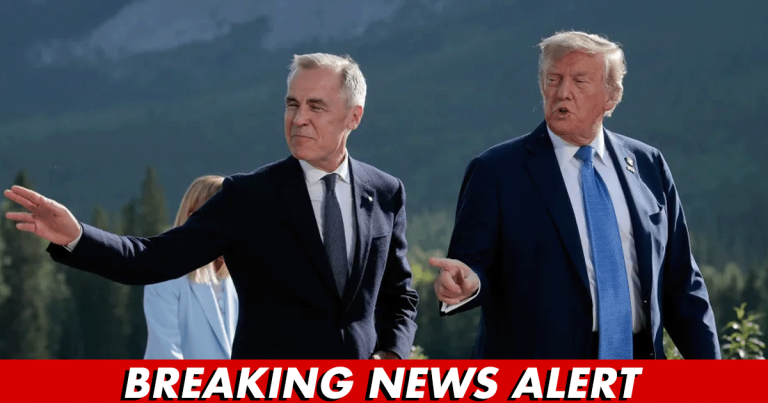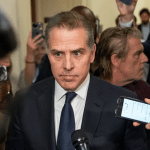
Remember when your mom said “patience pays off”? Well, sometimes it’s the opposite that works. Standing firm and walking away from the table can make others chase after you with better deals. That’s exactly what’s happening on the world stage these days.
Think of it like a poker game where one player isn’t afraid to push all their chips to the center. The other players suddenly get nervous, look at their cards again, and start to sweat. They were bluffing all along, hoping nobody would call them out.
Canada just folded its cards in a high-stakes game with President Trump. The Canadian government announced Sunday it’s dropping its controversial digital sales tax after Trump walked away from trade talks last week. This tax targeted big American tech companies, and Trump wasn’t having it.
From ‘The Post Millennial’:
The government of Canada under the leadership of Mark Carney has rescinded the digital sales tax in the hopes of resuming trade talks with the Trump administration…
“Canada’s new government is engaged in complex negotiations on a new economic and security partnership with the United States, focused on getting the best deal for Canadian workers and businesses. Prime Minister Carney has been clear that Canada will take as long as necessary, but no longer, to achieve that deal.”
Prime Minister Mark Carney’s new government quickly changed course after Trump threatened to slap tariffs on Canadian goods. The tax, which was set to be collected on June 30 (today), has been halted. Finance Minister François-Philippe Champagne will soon bring forward legislation to completely eliminate the Digital Services Tax Act.
This marks another clear win for Trump’s tough approach to trade negotiations. When Canada wouldn’t budge on the tech tax, Trump simply walked away from the table on Friday, announcing the U.S. would end trade talks and assign tariff rates on Canadian goods within a week.
America First Approach Gets Results
“People don’t realize, Canada is very nasty to deal with,” Trump told Fox News on Sunday. That blunt assessment might shock those who think of our northern neighbor as unfailingly polite, but in trade negotiations, politeness doesn’t always reflect actions.
The digital services tax was designed to target large American technology companies operating in Canada. It would have forced U.S. businesses to pay extra taxes just for having Canadian users – even if those companies don’t have physical offices in Canada.
Unlike previous administrations that might have spent months in fruitless negotiations, Trump took decisive action. By Friday, he announced talks were over. By Sunday, Canada caved completely.
Looking Ahead to New Agreement
The sudden reversal shows how serious Canada is about maintaining good trade relations with its largest trading partner. Trump and Carney have now agreed to resume negotiations with a deadline of July 21, 2025, to reach a new deal.
“In our negotiations on a new economic and security relationship between Canada and the United States, Canada’s new government will always be guided by the overall contribution of any possible agreement to the best interests of Canadian workers and businesses,” Carney said in a statement.
But actions speak louder than words. By dropping the tax before even getting back to the negotiating table, Canada has signaled who has the upper hand in these talks.
America’s Strength Restored
This rapid Canadian retreat demonstrates how America’s trading partners are adjusting to Trump’s leadership style. When America stands firm for its interests, other nations take notice.
For American tech companies and the millions of Americans who work for them, this represents a significant victory. They won’t face discriminatory taxation in one of their largest markets. It’s a reminder that protecting American business interests abroad benefits real American workers at home.
Key Takeaways
- Canada dropped its digital tax targeting American tech companies after Trump walked away from negotiations
- Trump’s direct “America First” approach achieved in days what might have taken months of traditional diplomacy
- Prime Minister Carney quickly reversed course when faced with potential tariffs on Canadian goods
- The July 21 deadline gives both countries clear timeline to reach a new economic agreement
Sources: The Post Millennial, Axios


